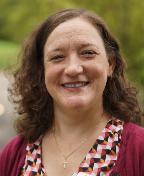Ana Margarita Rivero Arias, PhD

PhD, Teaching, Curriculum, & Learning, University of Nebraska - Lincoln
MA, Organizational Development, Universidad de Monterrey
MA, Education, Universidad de Monterrey
BS, Food Industry Engineering, Cum laude, Universidad de Monterrey
Assistant Clinical Professor, Teacher Education (MIT)
Email: riveroaa@seattleu.edu
Phone: (206) 296-2195
Building/Room: Loyola 313
Biography
Dr. Ana Margarita Rivero is a clinical assistant professor in STEM education in the department of Teaching, Learning, and Social Justice. Prior to her work at Seattle University, she collaborated in a private institution in Monterrey, Mexico as math and science high school teacher, curriculum supervisor, and head of the natural science department. Also, she developed the science curriculum for a high-needs vocational high school. Ana was a secondary teachers’ professional development instructor on reform-based teaching practices and curricular design. As an undergraduate, she studied food industry engineering. She has a master’s in education and organizational development from the University of Monterrey. She studied her Ph.D. in Teaching, Curriculum, and Learning at the University of Nebraska-Lincoln.
Teaching and research interests
Dr. Rivero believes in the importance of teaching science as inquiry and using metacognition to enhance learning. For her, inquiry-based teaching can provide opportunities for all students, and specially for underrepresented ones, to learn and develop autonomy, self-confidence, and collaboration skills. Moreover, she promotes the inclusion of engineering and scientific practices and metacognition in the classroom to support students’ generation of new knowledge and their integration into the society as critical thinkers and informed citizens.
Her research interests include the efficacy of teacher education programs developing inquiry-based practices in beginning science teachers. Her dissertation was about knowledge and experiences of metacognition and reflective practices for teaching secondary science. She also worked with her research group on how subject matter knowledge and misconceptions impact inquiry-based teaching practices.
